Three attributes to persist in self-improvement
Three tips to persist in the journey of self-improvement
Self-improvement is not an easy path, particularly because the tools and strategies that worked initially may lose their effectiveness over time. When faced with such situations, we may be tempted to think that nothing will ever work for us. However, rather than succumbing to such pessimism, we can embrace a long-term perspective, viewing self-improvement as a prolonged war against a powerful inner enemy. To persevere in this journey, we need three essential attributes encapsulated in the acronym RAP: Receptive, Adaptive, Perceptive.
1. Receptive
Receptivity refers to our openness to new ideas, insights, and inspirations that can motivate us and help us improve.
When a particular approach stops being effective, it doesn’t mean that no new strategy will work. Just as a general in a war seeks new weapons when the old ones fail, we need to remain open to fresh methods.
Ideas can come from expected or unexpected sources, and ultimately, all such insights can be seen as blessings from the omnipresent divinity, as described in the Bhagavad Gita (15.15).
This divine guidance encourages us to stay receptive, trusting that new resources and inspirations will come our way to help us realize the latent potential placed within us.
2. Adaptive
Adaptability is the willingness to put new ideas into practice. It goes beyond openness and involves implementing and experimenting with new strategies.
Often, we veer toward two extremes when trying something new: rejecting it as too cumbersome or embracing it as the ultimate solution to all our problems.
A balanced approach involves making an honest effort to incorporate the new idea while evaluating its effectiveness over time. Patience and persistence are key here.
Flexibility in adapting to the required changes and avoiding overconfidence or complacency ensures that we make progress without becoming disillusioned.
3. Perceptive
Perception involves carefully observing the effectiveness of the approaches we adopt.
Like a general who monitors the damage inflicted on the enemy by a particular weapon, we need to evaluate how well a strategy propels us toward becoming a better version of ourselves.
Perceptiveness allows us to appreciate the success of an approach while it works and to let go of it when it no longer serves its purpose.
When a strategy loses its effectiveness, perceptiveness brings us back to receptivity, creating a continuous cycle of exploration, adaptation, and evaluation.
The RAP Cycle
Receptivity, adaptability, and perceptiveness are not linear steps but interconnected attributes in a cyclic process. When one approach stops working, perceptiveness helps us recognize its limitations and return to receptivity, restarting the cycle with renewed energy and determination.
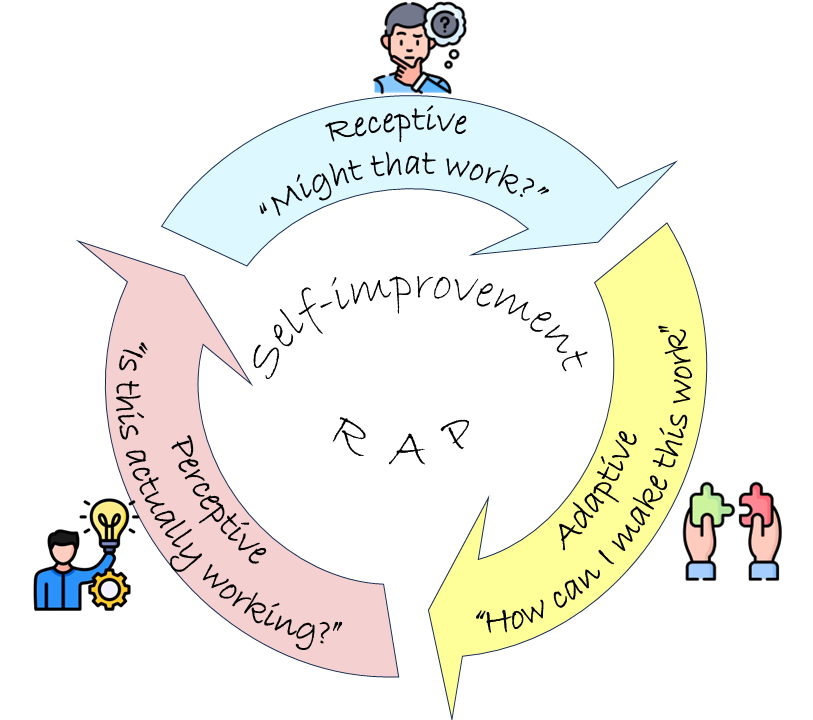
Summary:
- Persisting in self-improvement is like waging a long war against a formidable inner enemy. To stay committed, we need the three attributes summarized in the acronym RAP:
- Receptive: Be open to new insights, strategies, and approaches.
- Adaptive: Be willing to try out new methods and adjust to the changes they require.
- Perceptive: Observe and evaluate the impact of your efforts, continuing with what works and exploring alternatives when needed.
Think it over:
- List three things you can do to make yourself more receptive to fresh approaches and ideas.
- List three actions to increase your adaptability and readiness to implement new strategies.
- Identify three ways to enhance your perceptiveness in evaluating the effectiveness of your self-improvement efforts.
***
15.15 I am seated in everyone’s heart, and from Me come remembrance, knowledge and forgetfulness. By all the Vedas, I am to be known. Indeed, I am the compiler of Vedānta, and I am the knower of the Vedas.



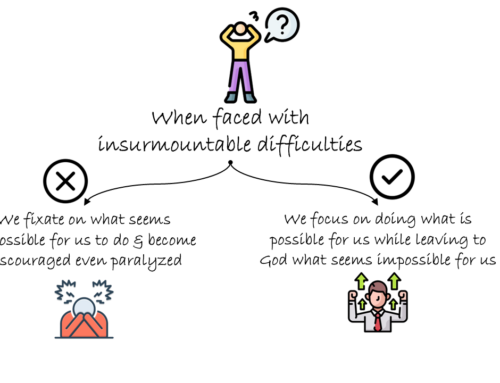

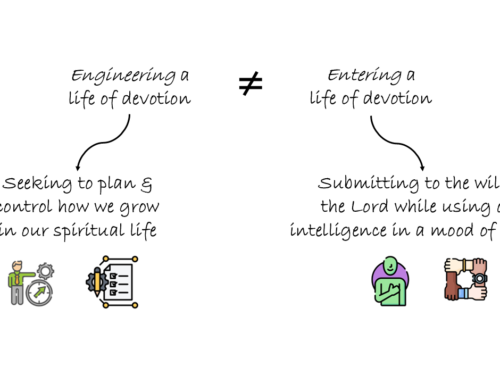

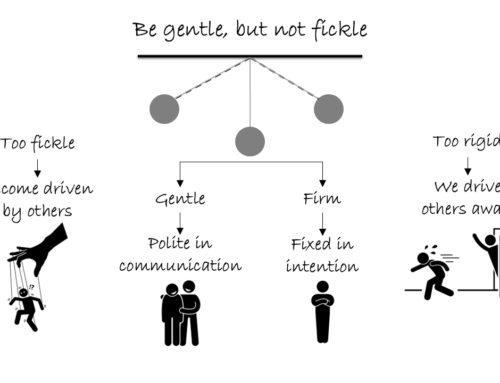
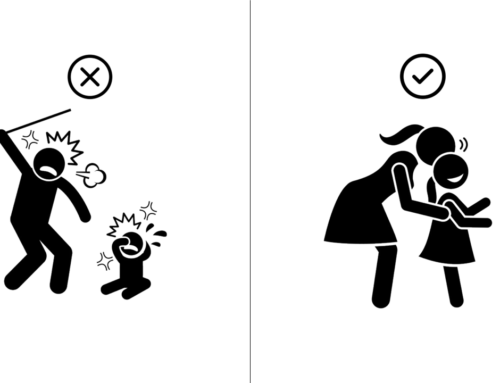
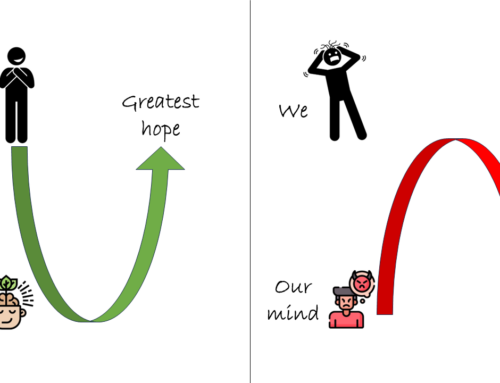
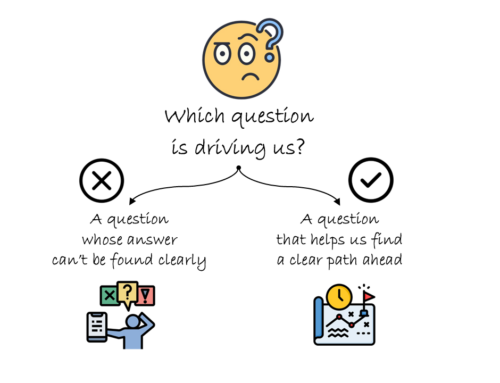
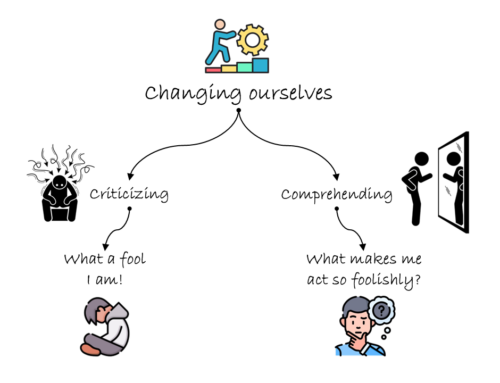
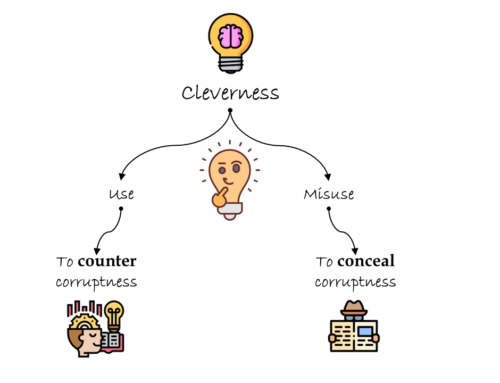
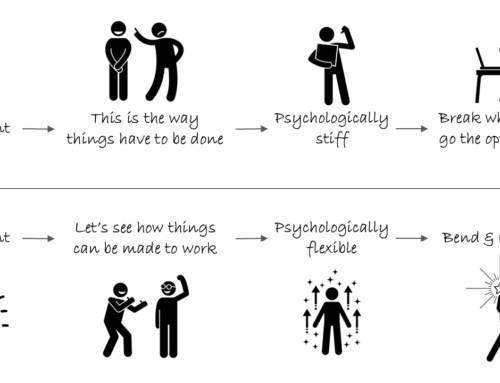
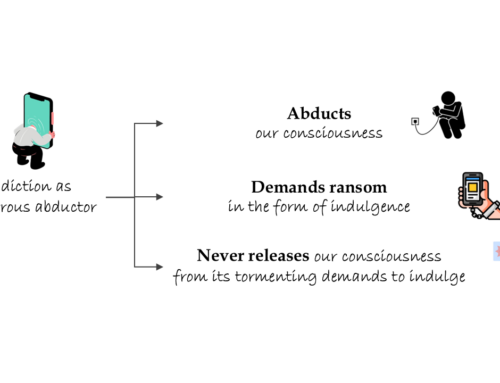
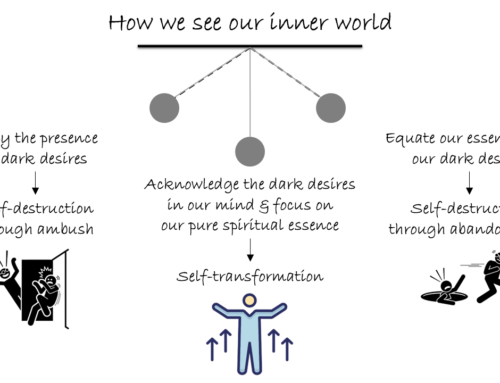
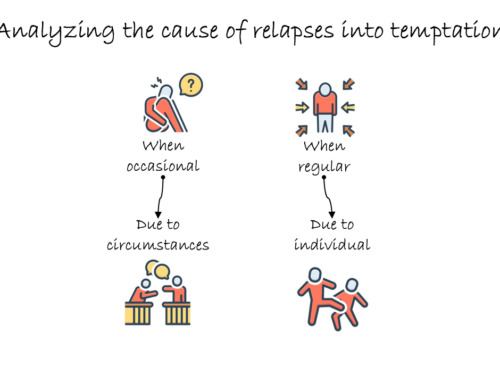
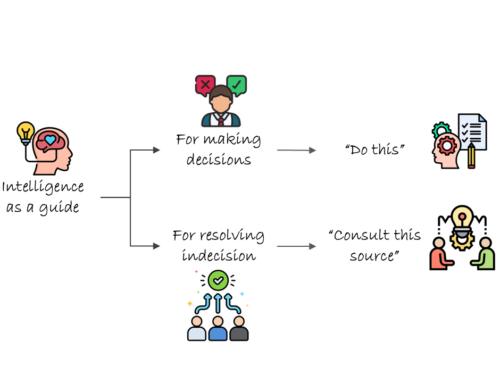
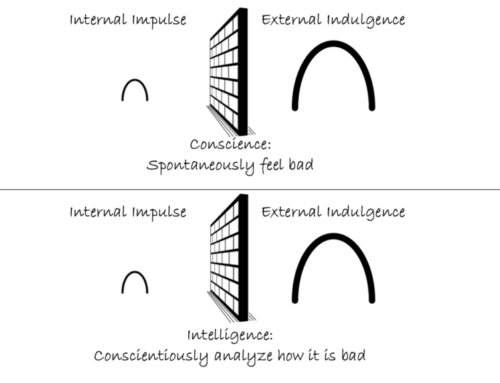
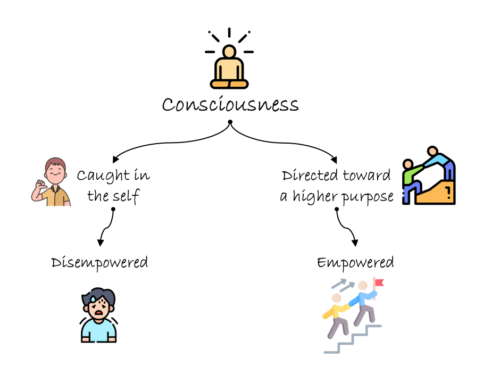
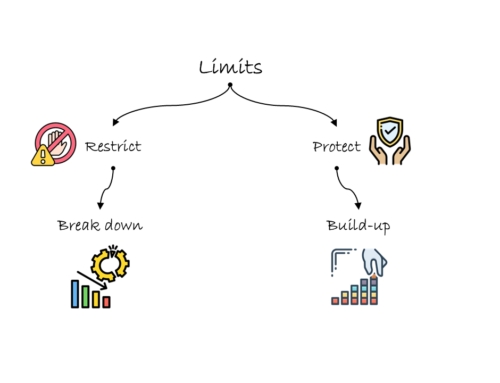
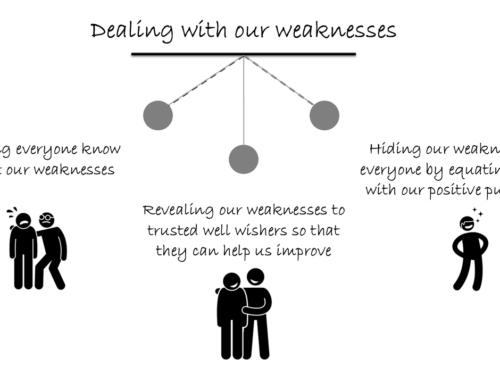
Leave A Comment